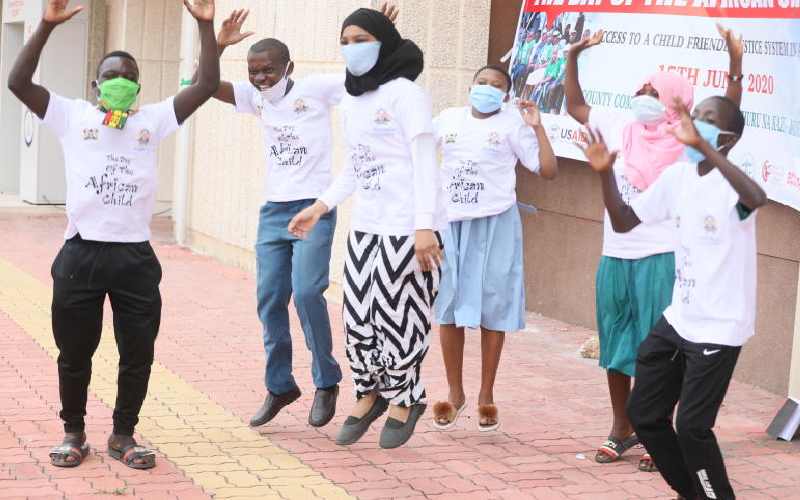
Children from SOS Children home and Marimani Primary School perform a play during the celebration to mark the Day of African child in Mombasa. [Omondi Onyango, Standard]
The Covid-19 pandemic has exposed many governments' lack of adequate strategies for the protection of children, especially concerning economic, social and cultural rights. Since the first case was reported in Kenya, life has dramatically changed for many people, partly due to the measures put in place to control its spread which have, among other things, seen markets, schools and places of worship closed and movement restricted.